Some opera-lovers prefer concert performances to full stagings. I don’t. It’s that whole Gesamtkunstwerk thing: opera needs to be seen as well as heard. There’ll always be circumstances in which concert performances are welcome — to rescue a neglected score, say, or if a symphony orchestra wants to stretch itself. But when a major company presents standard repertoire in concert, it feels like an admission of defeat. Opera North recently mounted a magnificent concert version of Wagner’s Ring — but for all the brave talk about a ‘radically stripped-back’ production, who seriously doubts that, if funds had allowed, it’d rather have gone the whole way?
Now it’s doing Turandot in concert. Let’s consider this an end-of-season bonus rather than a response to financial pressure, because Opera North could certainly use the benefit of the doubt: its music director Aleksandar Markovic quit last month without public explanation. His replacement for Turandot was Sir Richard Armstrong, and personally I’d call that an upgrade. In Leeds Town Hall — whose architectural extravagance gives Zeffirelli a run for his money —the orchestra and chorus sounded ebullient, pumping out gorgeous colours at colossal volume without the coarseness that tended to disfigure Markovic’s performances.
In fact, if you wanted a purely musical case for opera in concert, you’d struggle to find a stronger one. Armstrong combined surging momentum with long-breathed phrases, over which Orla Boylan’s Turandot and Rafael Rojas’s Calaf soared with fiery intensity. Alastair Miles’s rich-voiced Timur, Sunyoung Seo’s Liu — sung with a tenderness through which steel just occasionally glinted — and the way the three courtiers Ping, Pong and Pang made their exchanges dance, would all have made for a knockout recording. Annabel Arden directed, and as is often the way with concert stagings there were some powerful moments: Liu’s defiant eye contact with Turandot, a haggard Calaf turning ‘Nessun Dorma’ into a veiled threat, and the defeated Princess falling poleaxed to the floor.
But then you’d glimpse a supposedly dead Liu inching sideways across the stage, or the orchestral percussionist striking Calaf’s gong, and the illusion imploded. Arden clearly has a fascinating, if dour, full staging in her head, and while I’m still unsure why there was a two-storey white chair in the middle of the orchestra, other ideas — for instance, dressing Ping, Pong and Pang as macabre Pierrots, in a nod to the story’s commedia dell’arte roots — would be worth seeing explored in the theatre. Meanwhile, Armstrong and his team served up premium-strength Puccini at its most enjoyably reprehensible: titillating our cruellest instincts, drenching us with unearned uplift, and finally slamming us against the back wall with the sheer sonic glory of it all. One of our most thoughtful critics considers Turandot to be morally and artistically beyond redemption. Shamefaced, I can only plead the inalienable prerogative of consenting adults in private.
At the Barbican, meanwhile, John Adams conducted a concert performance of his Manhattan Project opera Doctor Atomic. It was electrifying, with the BBC Symphony Orchestra and Singers audibly galvanised by Adams’s presence, and the energy and iridescence of this thrilling score. Not everyone responds to Adams’s musical language, but at this stage that’s like objecting to Handel for writing da capo arias. Some current criticisms of Adams’s operas are reminiscent of those experts in the 1950s who assured us that Rosenkavalier and Tosca would vanish within a generation.
True, Doctor Atomic has weak spots: an underwritten female lead declaiming abstruse poetry, plus an ineffably mystical Native American maid (the only character without a surname) who intones further platitudes in an ineffably mystical Native American way. But when the action shifts to the laboratory or the test site, the drama ignites. Discussions about explosive yields and weather reports crackle with urgency, while the orchestra ticks relentlessly away to detonation. Gerald Finley originally created the role of Oppenheimer, a hollow man frantic to grasp anything that will still serve him for a soul, and the beauty and control of his singing here — letting the strain show, intentionally, only in the John Donne soliloquy ‘Batter my Heart’ — was a tremendous piece of vocal characterisation, compellingly matched by the black humour of Brindley Sherratt’s Edward Teller.
It ends with the explosion — coloured lights and electronic rumblings — and a fade to silence on a recorded female voice pleading in Japanese. It’s a jolt, and in the moment it’s as effective and unanswerable as Puccini. But doubts quickly set in. When Elgar first drafted The Dream of Gerontius, he omitted the blinding split-second flash of sound that, in the finished version, suggests the presence of God. It was his editor Jaeger who goaded him into that unthinkable act of artistic daring. The audience at the Barbican started cheering the moment Adams walked on, but I hope that somewhere in this great composer’s inner circle, there’s still a Jaeger willing to make his voice heard.
Got something to add? Join the discussion and comment below.
Get 10 issues for just $10
Subscribe to The Spectator Australia today for the next 10 magazine issues, plus full online access, for just $10.
You might disagree with half of it, but you’ll enjoy reading all of it. Try your first month for free, then just $2 a week for the remainder of your first year.

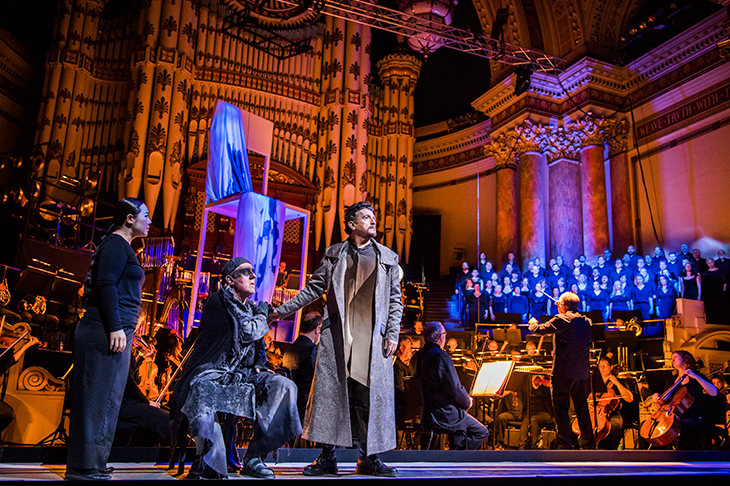

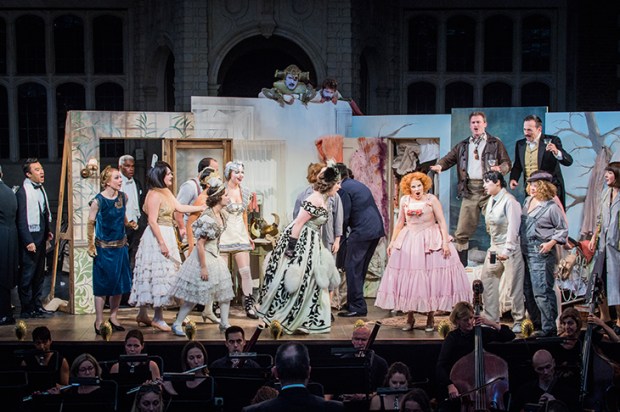
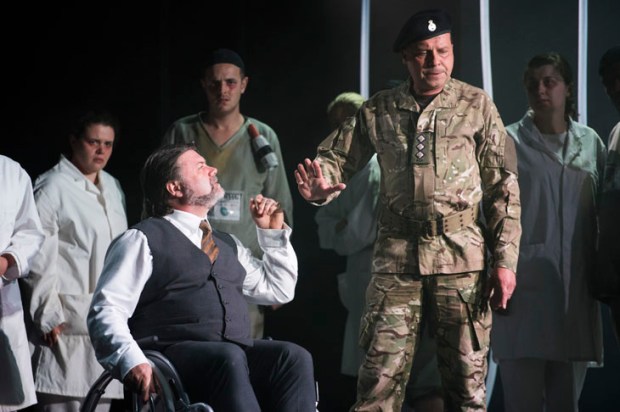
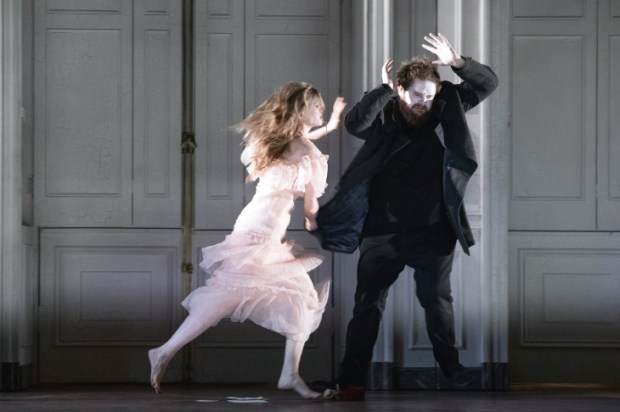
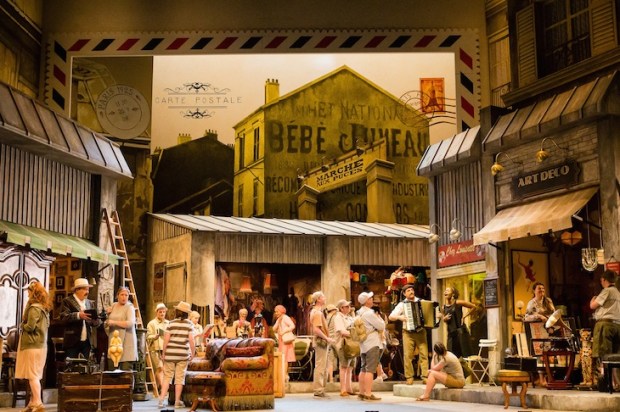
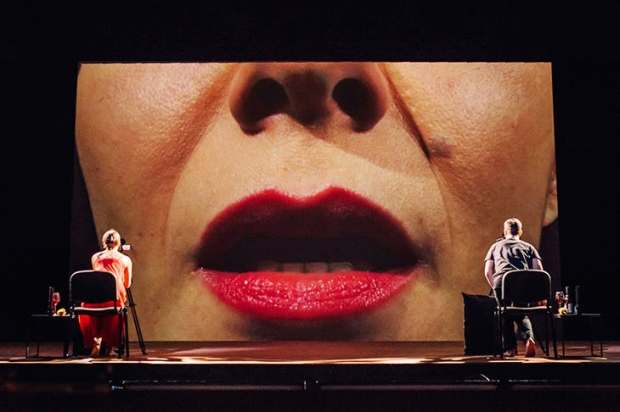






Comments
Don't miss out
Join the conversation with other Spectator Australia readers. Subscribe to leave a comment.
SUBSCRIBEAlready a subscriber? Log in